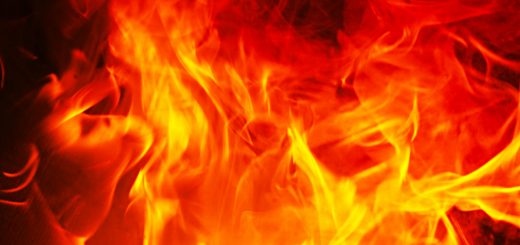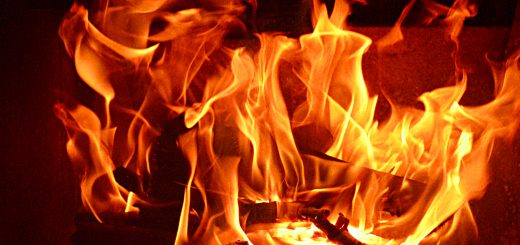What is Financial Independence and FIRE?

Today’s post is the first in a series called FIRE and Frugal, where we will be looking at the approaches people use to save towards Financial Independence. First up, what exactly is FIRE?
What is Financial Independence?
FIRE stands for Financial Independence, Retired Early.
Although the term is new, the approach is old.
- Early retirement has been a goal for certain people – usually small-business owners and entrepreneurs – for a long time.
- Most private investors have the goal of growing their pot to the point where they can quit the day job and become a full-time investor.
Financial independence – or financial freedom as some people call it – is a goal for an increasing number of people, but not everyone wants quite the same thing.
- Some people want “full FIRE” – they want to be safe so they can retire.
- Others on the FIRE track just want to be independent, but would like to carry on working at something they enjoy, or perhaps switch from a full-time job they don’t like into a part time job that they would enjoy.
- The third option – early retirement without financial independence – is not recommended, as you are likely to run out of money at some stage.
What’s changed recently is that people are identifying it as a goal much earlier in life, and aiming for a much earlier retirement.
- Whereas baby boomers might have aimed to quit work at age 55 or 50, some millennials are working towards FIRE from a young age – in their 20s and 30s – and aim to be retired by 40 or 35.
- Financial independence at such a young age requires sacrifice and a commitment to a frugal lifestyle, whereas retirement at age 55 is more about financial planning
So how do you know when you can declare FIRE – or as some people call it, Findependence?
- Let’s take a look at the stages towards becoming financially independent.
What isn’t FIRE?
A lot of people think that financial independence means clearing your debts.
- The day you pay off your last debt – often a mortgage – is a great day, and it will give you great confidence about your financial future, but it doesn’t mean that you are FI.
Other people think you are FI when you have paid off your debts and you have enough saved for emergencies.
- Most people think that you should have around three to six months of salary (or whatever income you live on) saved up for a rainy day.
That’s certainly a good idea, but it won’t make you FI.
To be financially independent, you need have saved enough in physical and financial assets (property, cash, stocks, bonds, gold) so that you can generate the income you need to live just from these assets, without having to work.
- And it gets worse: you really need to be able to generate this income year after year – forever – without running down the assets themselves.
- There is a weaker form of FI, where you only need the income for the number of years that you expect to live.
- So a baby boomer retiring at 50 might expect to live until somewhere between 80 and 90, and would plan to generate the required income for around 40 years – if not much cash was left after that, they’d be taking their chances.
Steps towards FIRE
You can’t wave a magic wand and become financially independent tomorrow.
- We all start off dependent on our parents and gradually work our way up the ladder to freedom.
There are six basic steps to FIRE.
- Like much to do with money, they are simple but not easy.
One – You need to learn to save.
- This means keeping your expenses down to where you can live on less than you earn.
- This means that you are financially solvent.
- You can never retire unless you learn to defer consumption.
- So you’ll need to budget.
- And you’ll need to keep track of what you spend.
-
Popular areas to save money are housing and transport, but whatever you spend a lot on is where you should start.
- Stop buying so many new things, especially shiny tech that won’t last – don’t keep up with the Joneses.
- Don’t pay for insurance that you don’t need.
-
It’s also useful to develop skills (cooking, DIY) so that you avoid having to pay others to do work for you.
-
You need to save as much as you can – at least 15% of your income, and preferably more. ((We’ll look at the maths behind saving rates in a later post, but for now just be aware that the more you save the better ))
- If your employer has a pension contribution matching scheme, take advantage of it.
- The more you save, the quicker you will hit FI (all things being equal)Many millennials aim to save 50% or more of their income.
- Many millennials aim to save 50% or more of their income.
- It’s easier to get your savings rate high when you are young and haven’t already committed to a lot of expenses.
- It’s also easier in a couple than as a single person.
- The more you earn, the easier it is to save, so don’t forget this part of the equation.
Two – Once you’re saving every month, you can put together that emergency fund we talked about earlier.
- If you don’t have an emergency buffer, the next rough patch will derail your financial plan.
- Or looking on the bright side, without an emergency fund, you won’t ba able to take advantage of a wonderful opportunity should one present itself.
Three – Next, you need to pay down your debts, starting with the most expensive.
- This doesn’t mean the one with the highest amount of interest each month.
- It means the one with the highest interest rate, that is hurting you the most.
- Keep going until you are debt-free (apart from your mortgage).
Four – You need to find a place to live, and you need to start to pay down the mortgage.
- Lots of FIRE and frugal bloggers recommend renting over buying a property.
- Some of the hardcore ones recommend living in a vehicle or in the woods.
- This is particularly the case with American writers as the property market is very different over there, people move around more and alternative lifestyles are more accessible.
- Here in the UK, your primary residence is tax-advantaged, and you will usually do better over the long run by buying.
- If you do decide to buy, paying down the down the mortgage is a big step towards FI, as you are reducing your living costs in retirement.
Five – You need to save your money into assets that will grow faster than inflation.
- I know we haven’t had much in the way of inflation in recent years, but it will be back soon enough.
- Keeping your money in cash – even within a tax-sheltered account like an ISA – won’t do over the long-term.
- You have to take a short-term risk with stocks and bonds to avoid the long-term risk.
-
A simple portfolio would include UK stocks, international stocks and some bonds.
- Some people would add property and commodities, and split the stock and bond allocations down, but it’s not vital.
-
There are lots of posts about asset allocation and model portfolios on this website.
-
Review your progress (once a year is enough) and rebalance your portfolio when some assets have risen and others have fallen.
- You also need to pay attention to costs and taxes, as these will eat into your investment returns.
Six – As you get closer to FIRE, you need to develop some form of income for retirement.
- Historically the four most popular options have been annuities, rental income from property, dividend income from shares and interest payments from bonds.
- But all four look less attractive than they did 20 years ago.
-
With increases in longevity and decreases in interest rates, annuities now yield only a fraction of what they did in the 1990s.
- House prices in the South of England are very high, and so rental yields are correspondingly low.
- In addition, the government has made it clear in recent years that they want to discourage buy-to-let landlords, and that an unfavourable tax treatment will be used for rental income.
- Bond yields are low because of chronically low interest rates since the 2008 financial crisis.
-
Shares are highly valued and so those companies that have maintained high dividends are struggling to pay them from their underlying earnings each year.
-
Of course, the simplest way to generate income is to sell an asset – if you have budgeted correctly, this need not affect the long-term viability of your retirement pot.
-
The amount that you can safely take out of a pot is known as the safe/sustainable withdrawal rate, or SWR – we’ll talk more about this in a later post.
-
Other people will prefer to work part-time, or to generate income from a hobby.
- If you depend on this income for basic living expenses and you have to do something to receive it (it isn’t passive income), then you are not strictly FI.
How long will it take?
So that’s the five-minute guide to how you can become financially independent so that you can retire early.
How long it will take you depends on three things:
- how little you can live on (keeping your expenses low)
- how much you can save (which in turn depends on how much larger than your expenses you can make your income)
- your investment strategy
In this series of FIRE and Frugal posts, we’ll focus on the first two of these.
- The rest of the website covers investments.
It may seem like a shallow goal, but really FI is just the start.
- Until that day, you’re doing things because you have to.
- Afterwards, you’re doing things because you want to.
Financial independence is really just independence.
- And it can’t come early enough.
Next week we’ll look at what being frugal means.
Until next time.

